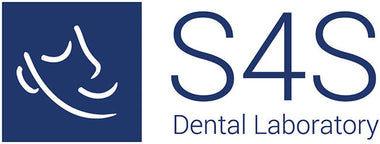SHOULD YOU BRUSH TEETH BEFORE OR AFTER BREAKFAST?
Brushing your teeth twice a day is an important part of maintaining good oral health, but should you brush them before or after breakfast?
The question is one that often sparks debate. Some people prefer brushing after breakfast to remove food particles, while others brush first to start the day feeling fresh.
However, the timing of your morning routine can actually make a big difference to your dental health.
Brushing teeth before breakfast is often the best choice. Here’s why incorporating teeth-brushing into the early steps in your morning routine is beneficial, and how you can protect your teeth if you’d still prefer to brush afterward.
Why is it better to brush teeth before breakfast?
Brushing your teeth first thing in the morning clears away bacteria that build up overnight.
While you sleep, your saliva flow slows down. This allows bacteria to multiply, which can cause the well-known ‘morning breath’.
When you brush your teeth before breakfast, you remove this layer of bacteria and add a protective fluoride coating to your teeth, making them stronger against acids and sugars from food and drinks.
Brushing before eating also helps get your saliva flowing, which naturally helps wash away food and neutralise acids. This means your teeth are better protected when you sit down for breakfast.
Why is it harmful to brush teeth after breakfast?
Brushing after eating may seem like a good way to clean your teeth before starting your day. But, if you do it too soon, it can actually do more harm than good.
Many breakfast foods and drinks (like fruit, juices, and coffee) are acidic and can soften your enamel.
Brushing your teeth straight after eating can wear down this softened enamel, leading to sensitivity and decay over time.

What to do if you brush teeth after eating
Whether you forgot to brush beforehand or simply would prefer to wait until after you’ve eaten to brush, there are ways to reduce the risk of damage.
• Wait at least 30 minutes to give your saliva time to neutralise acids
• Rinse your mouth with water or chew sugar-free gum to freshen your breath
• Make sure to floss and use a mouthwash alongside brushing
Waiting and rinsing first after eating helps prevent damage to the enamel.
Choosing the right toothbrush and toothpaste
Using the right toothbrush and toothpaste can make a big difference in protecting your teeth.
A soft-bristled toothbrush is ideal, as it cleans effectively without being too harsh on your enamel or gums.
Electric toothbrushes can also be a great option, as they provide consistent pressure and remove plaque more efficiently.
When it comes to toothpaste, a fluoride-based formula is best for strengthening enamel and preventing decay.
If you have sensitive teeth, it’s a good idea to look for a toothpaste designed to reduce sensitivity while still offering cavity protection.
Looking to reduce discolouration on teeth? A whitening toothpaste is a great way to tackle staining caused by drinks such as tea, coffee, and red wine, as well as highly pigmented foods like curry.
Keep your teeth and gums healthy
While brushing before breakfast is the best choice to protect your teeth from harmful acids and bacteria, it’s still possible to safely brush after eating by following the few simple steps outlined.
Whether you prefer to brush before or after breakfast, choosing the right toothbrush, toothpaste, and oral care products is key to maintaining strong, healthy teeth.
Why not explore our range of high-quality dental hygiene products to help keep your teeth in top condition?
